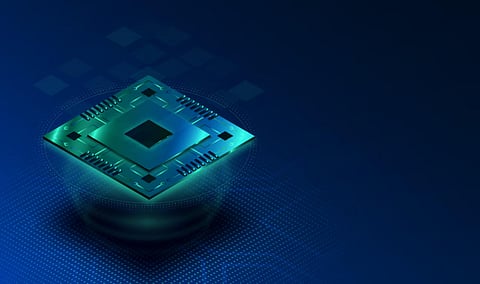

Google announced that its quantum processor, Willow, has achieved the first-ever verifiable quantum advantage. According to the company’s blog, Willow executed the algorithm Quantum Echoes (an out-of-time-order correlator task) about 13,000 times faster than the best classical algorithm running on one of the world’s fastest supercomputers.
The algorithm enabled the chip to analyze atomic and molecular interactions using nuclear magnetic resonance techniques, a step beyond previous purely benchmark-based claims of quantum advantage.
Google CEO Sundar Pichai said the outcome represents a verified milestone toward the first real-world quantum applications. He emphasized that the breakthrough confirms Google’s commitment to advancing quantum research and integrating it with the company’s broader artificial intelligence initiatives to tackle scientific and industrial challenges.
The term verifiable quantum advantage refers to a quantum algorithm whose outputs can be independently confirmed - either by other quantum systems or by comparing with known physical experiments - rather than relying solely on statistical sampling of bit-strings. Google noted that Quantum Echoes runs repeatably on Willow and produces results that match expectations from quantum theory.
Willow is a superconducting qubit processor reportedly containing 10^5 physical qubits. Its architecture and error-correction design allow it to scale more reliably than past systems. Google described this achievement as a major step toward solving real-world quantum problems - particularly in materials science, molecular modeling, and quantum chemistry.
This result places quantum hardware closer to practical applications. Traditionally, quantum chips demonstrated either theoretical speed-ups or narrow benchmarks; this time, the focus shifts toward verifiable, domain-relevant tasks. Google argues that the milestone opens the door to future efforts in drug discovery, new materials, and the simulation of quantum systems that classical computers struggle to model.
However, experts stress that the achievement does not mean universal quantum computers are immediately available. In addition, significant increases in qubit count, error-correction capabilities, and logical-qubit performance are still needed before quantum machines can handle broad, commercially viable workloads.
Industry analysts also note that this progress strengthens Alphabet’s long-term position in quantum AI. The company continues merging research from its DeepMind division with its hardware teams to develop more reliable quantum systems. As global investment in quantum computing grows, Google’s proven results could set new performance standards for other technology companies.
Google's announcement about Willow's performance on the Quantum Echoes algorithm is a significant step forward in quantum computing. It not only promises to be a speedup compared to classical methods, but also to yield results that can be independently checked.
While widespread practical deployment is still some ways away, this milestone adds a booster shot to the argument for the increasing relevance of quantum computing in the real world. The deal also strengthens Alphabet's position as a leader in technology that can lead the next generation of scientific advancement.
Also Read: Trade-Off Between Convenience and Security: Google DeepMind's AI Tool Raises Questions
